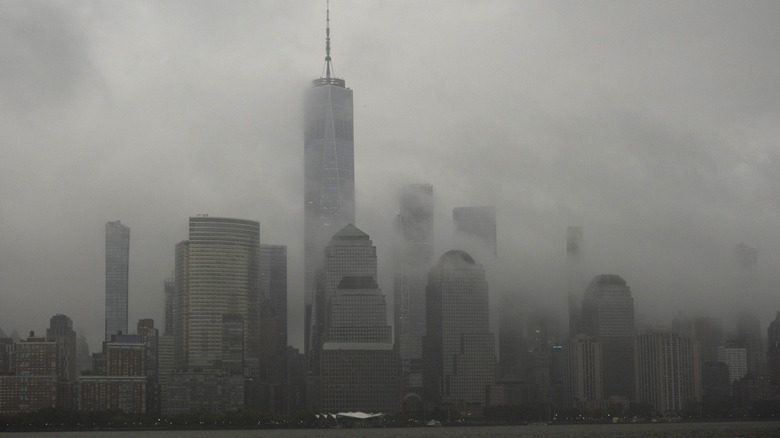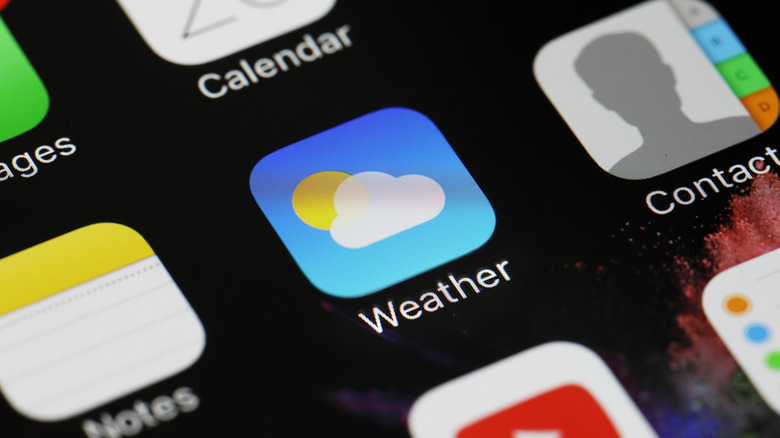If You Noticed The iPhone Weather App Is Often Wrong, You Aren't Alone
We've come to rely on weather apps, as they are more convenient than having to check TV broadcasts for the weather report. You can not only have weather predictions down to the hour, but you can check how the weather is at any given minute before going out your door.
Except, that's not always the case, because the apps aren't always accurate. The iPhone Weather app, particularly in the U.S., has failed a lot in recent months. The app can be unable to accurately say whether it's raining outside right now, or how much rain there is. If you live in a rain-heavy city like Seattle, you understand that there is a difference between rain and light rain.
After a few wrong predictions that get you soaking wet — or overwhelmed with a jacket and clothes you didn't really need — you might start wondering if you should just switch to another app and stop trusting the Weather app. The Apple Weather app can be wrong often, and there is a not-so-simple explanation for it.
What's wrong with the Weather app?
Predicting the weather is hard. Even though we've made advancements, it remains impossible to predict with 100% accuracy, especially when climate change continues to throw statistics out the window. In an interview with Vox, Alexander Stine, a professor at San Francisco State University's Earth and Climate Sciences Department explained that every weather app ultimately draws information from the same source, the National Weather Service. They run a simulation every six hours that gives them a weather prediction for the next few weeks. Then, regional offices use past data to break down those predictions into relatively more accurate forecasts (which is an area where AI can actually help).
The problem is that this is all still based on algorithms, which can't account for differences in regions, like terrain. That's why human meteorologists will always be more reliable than an app. They know their areas better than an algorithm, and can account for the specifics of a region and how they affect the weather.
So, what can you do? For one, you can find alternative apps, like The Weather Channel app or Accuweather. These may pull from the same base information, but use different equations and algorithms to make their predictions.
There's also location. The Weather app may be showing you a prediction for the larger metropolitan area — and if you live in a big city with different microclimates, it may have wildly conflicting predictions. Allow your Weather app to use your precise location rather than your ZIP code.

